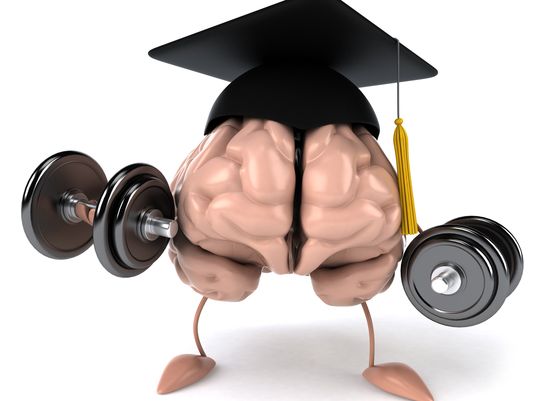Dr. Rick Hanson is a neuropsychologist and the author of the bestselling Buddha’ Brain: The Practical Neuroscience of Happiness, Love & Wisdom. It has been translated into 21 languages and spent over 300 days on Amazon’s list of top 100 best-selling non-fiction books. Dr. Rick has a new book out called Just One Thing: Developing a Buddha Brain One Simple Practice at a Time. He has taught at Oxford, Stanford, and Harvard and his work have been featured in BBC, NPR, Consumer Reports, US News, and World Report.
I spoke with Dr. Rick about how it’s possible to physically change your brain, your attitude, work performance and life with… Just One Thing.
Steve Kayser (S): What is your book about, “Just One Thing: Developing a Buddha Brain One Simple Practice at a Time?”
Dr. Rick Hanson (Dr. R): It’s a collection of simple practices. Little things that people can do few minutes a day or just kind of have in the back of their mind sometimes that will produce big results over time in terms of changing their brain for the better.
Neurons That Fire Together Wire Together
There is a famous saying in neuroscience, “neurons that fire together wire together.” That means that with our thoughts alone, we can change the physical structure of our brain.
The brain is continually changing its structure. The only question is … is it doing so for better or worse? And who or what is changing it? All the events in your life, the media, the economy, the people you live with, sleep with, work with, or stare at across the dinner table? Or, are we in charge of changing our brains? That’s what the book is about. It’s grounded in self-reliance applied to one’s brain.
S: When you say brain changes, you are talking about actual physical neural substrate changes in the brain? How does it do that?
Trouble and Strife and Everything Nice
Dr. R: It’s quite amazing. An example I love is taxi drivers in London.As you might know, London is a spaghetti snarl of streets. Taxi drivers have to memorize all the streets. During their training, a part of their brain called the hippocampus – it’s like a muscle, and does visual-spatial memory – is worked out considerably. So, guess what? At the end of their training studies show – solid science – that their brain is measurably thicker in that part of the brain. They worked that brain muscle. It got bigger.
Similar studies show that people who routinely do some prayer or mindfulness practice, or contemplative exercise every day, have measurably thicker cortexes in parts of their brain that are involved in controlling attention and self-awareness.They are working that part of the brain, so it gets stronger. Therefore it, and they, are more capable of doing good things for people.
S: I have a similar example based on real-life experience with cab drivers in London. What you might not know about taxi drivers in London is that they are great poets. Great rhymers. And can drive with their eyes closed or looking back at you.
Dr. R: (Deep silence)
S: I was with a Cockney taxi driver in London. He was a non-stop, prolific, rapping- rhymer. It was mesmerizing. Mainly because I noticed he wasn’t looking where he was going most of the time. He incessantly talked about his trouble and strife. His hippocampus must have really been hip because he was a super-driver. We had 15 near-death auto accidents … and all the time he was looking back and talking to me. But he eventually delivered me safe to my destination. That’s how well he’d memorized the art of driving in London. Finally, I asked, “what kind of trouble and strife do you have my friend? Please tell me before I expire in this cab.”
He responds, “Same as you mate. Except you Americans call your trouble and strife a wife.”
Dr. R: Isn’t that great?
Building a Better Brain
S: It’s funny now – but I aged in dog years for that 15-minute ride. What are a couple of other examples of formative practices to help build a better brain?
Get on the Right Side – Your Own
Dr. R: The first thing to do – and the beginning of it all – is to get on your own side.
I had a business background before I became a neuropsychologist. In business, there is a pretty good understanding of the need to be for yourself, right? But I think a lot of people just don’t have that same strong sense to be for themselves.
They are better friends to other people than they are a friend to themselves. The little basic practice of treating yourself like you matter is critical. Often we become overwhelmed with job issues, children, relationships, the economy – and it’s kind of hard to be for ourselves.
Not Against – But For
That doesn’t mean being against others – but to be for yourself.
That fundamental attitude towards your welfare in a strong and sustained way is incredibly important. For some people, it’s a, “so what?” Or, “of course.” But when was the last time you thought,
“I need to be a better advocate for myself?”
Another practice I call, “notice you are all right, right now.” It is based on an effective rule that developed as us humans came out of the woods and into civilization. The rule is;
“Eat lunch today, don’t be lunch today.”
The very first emotion we evolved was fear. We are vulnerable to a sense of threat and that’s why there is typically in us this subtle background pulse of anxiety, kind of a trickle. For some people, it’s more like a river. Animals or humans that did not feel anxious got eaten. Ones that survived are paranoid and cranky.
Underestimating Overestimation
There is this tendency to look at life as if it’s always at a DEF-CON FOUR threat level of nuclear war. The brain routinely tends to overestimate threats and underestimate opportunities and resources for dealing with them. It’s important to put in a correction factor. Otherwise, you have what I call “paper tiger paranoia.” We go through life with a sense of more things about to jump than are there.
So, if people just kind of notice that …
I am all right. Right now. That’s right. I’m all right now.
S: But sometimes … we’re not all right. I got beat in checkers yesterday by arrogant, pompous loudmouth know-it-all 5-year old. A despicable act of treachery was involved. But there it is. I was eviscerated.
Dr. R: Yes, sometimes we are not all right. Sometimes terrible things happen, or we are in real pain or something like that. Like you were. But most moments, for most people, most days, they are truly basically all right. And letting that sink in is what’s called “taking in the good.” Always take the good when you can. It nourishes you.
Sinking in is the Way Up
You let it sink in over and over again.
You are all right. Right now.
It will build self-confidence, a sense of strength and a willingness therefore to dream big dreams, take a serious swing for the fences, reach out to say what’s in your heart, ask for the love you want, ask for the raise you want because you have this underlying self-sense – a strength and safety that you will gradually build up inside your brain.
S: You’re right. You’ve inspired me. I’m all right.
Right now.
And I’m going back for a checkers rematch asap.



